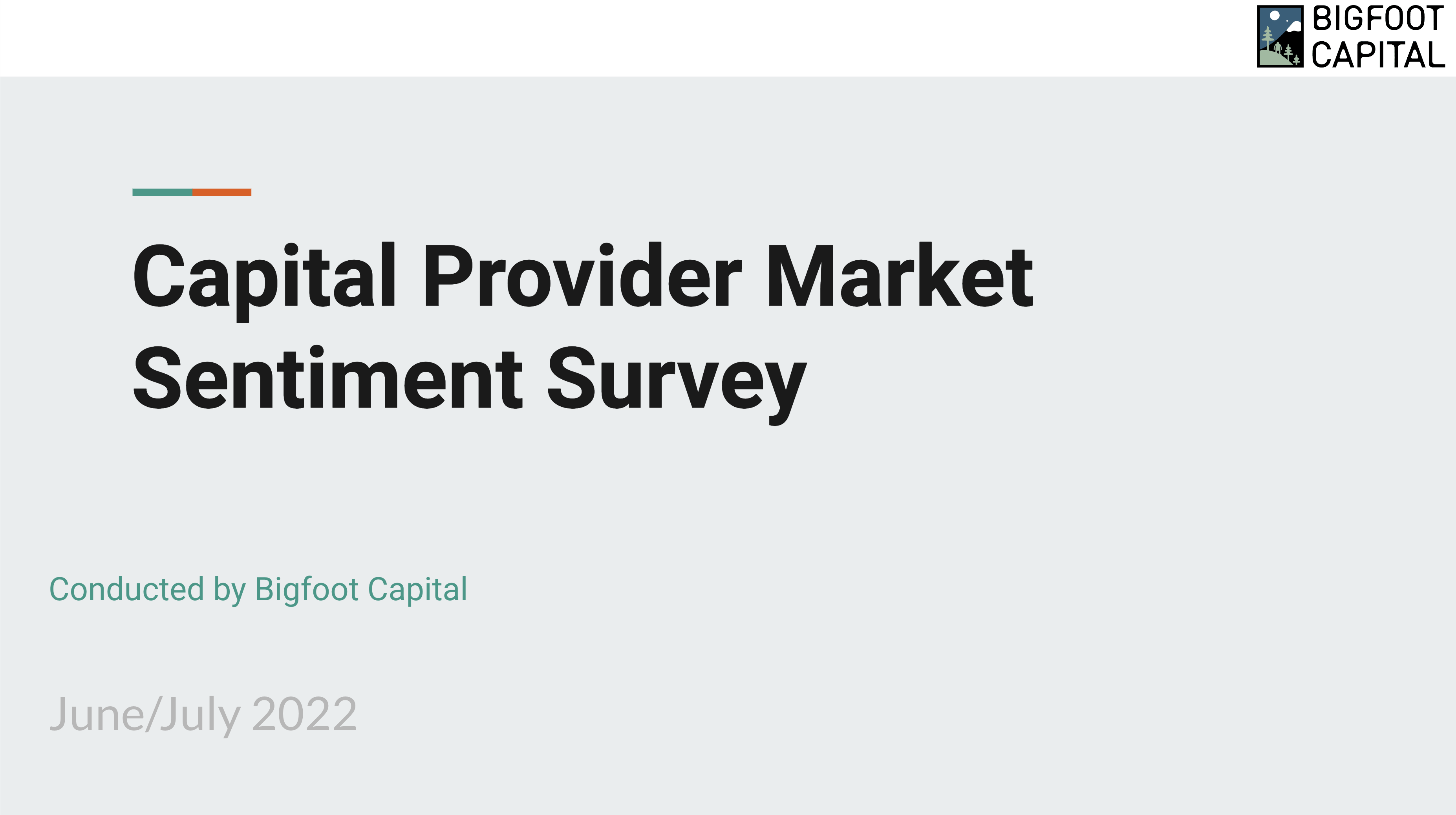
We wanted to know how early-stage SaaS Founders think about capital as a component of their business, so we asked 30 of them. Below are the most important questions and the answers we got from 30 Early-Stage SaaS Founders on Raising Money.
The Founders
Takeaways on Founder Identification and Focus
- Product: 70% of Founders characterize themselves as at least partially product focused, with 1 in 4 describing themselves as solely product focused.
- Generalist: 40% ofFounders see themselves as generalists
- Sales and Marketing: 25% included sales and marketing as a focus.
- Operations: Only 10% listed operations as a core focus and 0% listed it as their sole focus.
Takeaways on Repeat Founders
- 83% of the group have started more than one company with almost 60% on their third company.
Their Thoughts on Capital
How do you think about capital for your business?
Takeaways: The answers were a bit all over the board, but over 25% of the group noted that they see capital as fuel to accelerate growth for their company. Nobody expressed raising capital as a core component of their business.
In the words of the Founders
- “Like I do about blood for my body… and food”
- “I view it as oxygen that gives us time to capitalize on opportunities”
- “Our goal is to build the business first and use capital to accelerate and improve it. Building a profitable business is a priority.”
- “Good if you have a real business model and want to scale, but only want to take it when I really need it and when it’s a good deal. Hate the “We raised XX million so we’re successful” idea that’s so prevalent in tech”
- “Want investors to come in with relationships, not just capital.”
What has your experience been in raising capital?
Takeaways: Not all of these Founders have raised capital. The ones who have have primarily done so via accelerators and angels, with about 25% having raised venture capital. The common theme was that raising capital is a time consuming and difficult to navigate process.
In the words of the Founders
Some Good Experiences
- It’s Situational and Founder Track Record Helps
- “Varied between easy and PITA [Pain in the Ass]”, 4-time Founder
- “Generally easy as a repeat founder, but time-consuming to get the valuations I want from people outside my immediate network”, 5-time Founder
- Mostly positive. Had to hustle and didn’t find many early-stage investors in [my state]. Mostly tire kicking local angels. Had to go out of state to find real money.”, 2-time Founder
- “Good, but wish I had known more of the mechanics, early on”, 1st-time Founder
Some Not So Good Experiences
- It’s a Slog
- “It’s more work than anyone can imagine, but I managed to do it”
- VC is Not the Only Path
- “I spoke with and met with VC’s who didn’t think our market had big enough potential. But I didn’t have [the] time or desire to fundraise full-time for 6 months to right the right person who would believe in us and land a deal. We spoke with some mentors who recommended we continue bootstrapping, so we cut expenses and are making it work with our revenue.”
“Not great in general. We’re a very focused tool and don’t have an Uber-like “take over the world” story. The economics for VC don’t fit what we are as a company, so it generally was a struggle.”
- Confusion: “It’s been incredibly difficult and the traditional VC route has proven to be tricky to navigate. Most don’t respond, are inconsistent with their stated philosophies, and the definitions of the various rounds are inconsistent at best.”
The Warning: “Most “groups” and people are not legit. They are simply trying to make money from startups (as in fees, etc). Finding real investors is difficult and there are a lot of weeds to dig through.”
In your own words, how would you describe venture capital?
“Money to fuel growth over all else.”
Takeaways: These Founders see venture capital for what it is, fuel for growth for a specific type of company, namely one that has aspirations to and actually could become enormous. Although, many referred to it as a “necessary evil”.
In the words of the Founders
- A Necessary Evil That Can Be Greatly Helpful
- “Necessary evil in some cases, massively helpful game-changing in others.”
- A painful but necessary distraction to getting things done.”
- “A means to an end.”
- Smart People that are Good to Work With
- “Kind of like a game. You have to play by certain rules, hone your networking/sales skills, and hopefully find luck on your side. It’s an interesting industry where you can find great people and value if you hustle and trust the process.”
- “I like the way they work. Fast decisions, good questions. Mostly reasonable. Though they are all different, so tough to generalize.”
- Understand What You’re Going After and Getting Into
- “Great, but scary if you don’t understand some of the expectations and dilution.”
- “Use it sparingly to accelerate a company to a specific outcome (or not), if you’re willing to sacrifice some optionality for outcomes/company direction.”
What do you think of when you hear the words “debt financing” and/or “lender”?
“Real estate and non-tech industries. “Lender” in particular makes me think of scams although lending isn’t inherently bad.”
Takeaways:The Founders’ theme was that debt is generally for companies that are non-tech and are cash flowing or have assets to serve as collateral. This is a common misperception as it’s generally been the case, but that’s changing (at least we hope so given that we provide debt capital to tech companies that aren’t cash flowing for a living). There were mentions of its value, specifically around not having to take equity dilution, but words like “expensive money,” “exploitative,” and “skiddish” were also in the mix.
In the words of the Founders
- Fear
- “That I’m going to lose my house and ability to send my kids to college if I take it.”
- Interest
- “This is definitely something that we are going to consider as—for the right business at the right time—it is a great source of funding that does not dilute your equity.”
- “Debt is a great tool to grow a business and finance growth.”
- Legacy Thinking
- “Generally old way of thinking, not in touch with higher-velocity, high-margin SaaS, and/or internet businesses. Probably wouldn’t apply to us because we don’t have traditional collateral to secure debt.”
- “A little skiddish as it doesn’t sound like a true partner for your business. Although could be an option if you have steady cash flow and want to retain ownership. I see it as a compliment to a venture capital raise.”
Summary
Venture capital is not the only way. That narrative is pervasive and misleading for the vast majority of Founders. VC’s fund <1% of the companies they look at. As a debt capital provider for early-stage SaaS companies, we’ve got our work cut out for us. That’s part of the fun in it after all.








